
A photo from an ad for “The Clansman” in the Los Angeles Herald, 1908.
Several weeks ago, I stumbled across a program from the Mason Opera House, announcing the upcoming production of “The Clansman,” the play by Thomas Dixon Jr. based on his novels “The Leopard’s Spots” and “The Clansman,” which in turn was made into “The Birth of a Nation.”
In response to questions about that post, I thought it would be worthwhile to examine the 1908 stage production of “The Clansman” in more depth, and I must say I’m glad I did. After years of looking through old newspapers, I like to think I’m pretty hardened to most of the attitudes expressed in print. But even so, the Los Angeles Herald’s review of “The Clansman” is shocking. (In essence — please note that this is a paraphrase — the unidentified critic says: “We Northerners hate blacks as much as you Southerners, so why are you giving us Yankees such a bad time?”)
The Los Angeles Herald clips on “The Clansman,” are online and not behind a paywall.
The production of “The Clansman” drew a fair number of protests by African Americans in Los Angeles and in Santa Monica (there was apparently a production at the Horseshoe Pier Auditorium).
The Times covered the protests against the play, and took the general attitude that it was a mediocre work based on some mediocre books and not worth being upset over the production.
The Political Watchtower column observed:
The colored brethren are mistaken in thinking that [Thomas Dixon Jr.’s] books and plays will stir up “class hatred, etc.” They wouldn’t sire up anything except a case of indigestion.
Veteran Times columnist Harry Carr disposes of Dixon and “The Clansman” this way:
Somewhere in the South is an unsuccessful parson named Dixon, whose intellectual caliber seems to be naturally that of a hoer of sweet potatoes.
But heaven help us, he writes books! They are about the worst ever written. With great craft, he seeks to write books that will be very fierce and unfair and rankly sectional; but he only succeeds in being ridiculous — and popular
Ordinarily, a play like “The Clansman” would last about a minute. My respects to the advance man for keeping the thing alive. Whatever salary he gets — why it ought to be more.
There seems to be little, if any, protest from the white community over “The Clansman.” However, the African Americans in Los Angeles signed petitions and asked Mayor Arthur C. Harper to halt production of the play.
The Times says:
In Philadelphia and in several New England towns the presentation of “The Clansman” has precipitated near-riots. In some places the mayors declined to permit the play to be presented and in others the Negroes gathered in the theater in force and succeeded in stopping the play.”
Harper eventually sent for a copy of the script, read and found nothing wrong, saying that none of the violent acts that protesters said created racial prejudice occurred on stage.
And while Carr dismissed Dixon and his writings, the Herald wrote a long profile of him, noting that he had visited Los Angeles and saying that he planned to move to California.
The Herald also wrote a feature on the “small squadron of cavalry horses” used in the play, which was an extensive production.
As for the production, the Herald’s unidentified critic says:
Possibly if the South only knew it, Northerners have about the same views on the Negro problem as the Southerners. They admit that it is a pressing one, that affiliation between the two races is unthinkable, and they contribute their share of retribution for Negroes who commit crimes. “The Clansman” seems to disregard this and in going back to Reconstruction days places the Northerners in the position of champions of the Negro in his worst qualities. There is but little to be accomplished in unveiling the horrors which “The Clansman” portrays. We know enough of them. The only problem now is what is to be done with the Negro. “The Clansman” offers no suggestion.
It is worth remembering that Los Angeles was strongly pro-Southern during the Civil War, as reflected by our examination of the Los Angeles Star from that era. It is interesting to speculate on what sort of reception was given to Harrison Gray Otis, a former Union officer, when he arrived a mere 20 years after the “recent unpleasantness.”

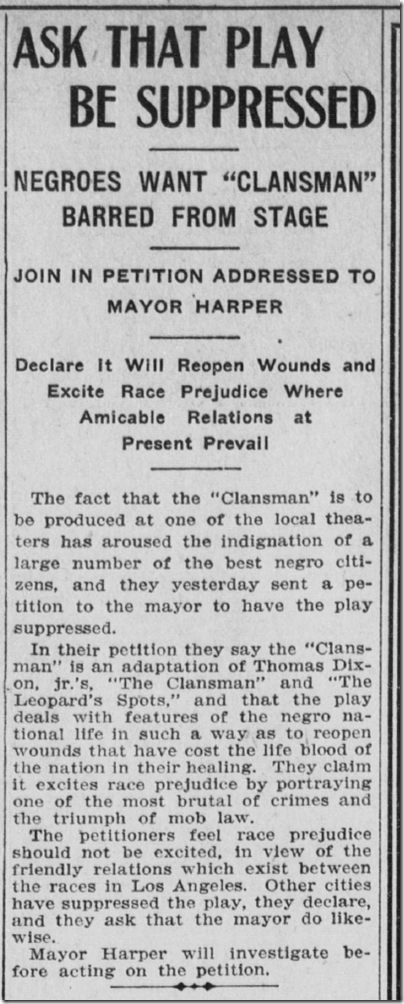
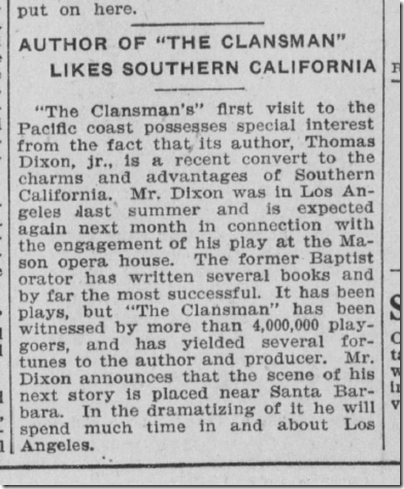
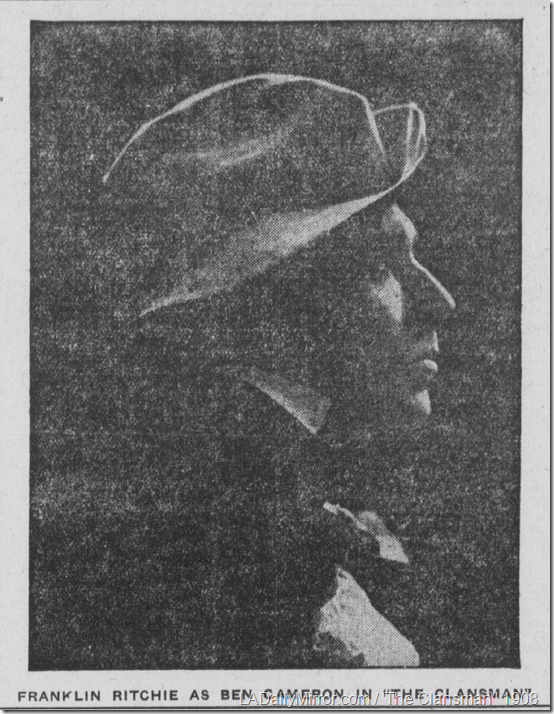

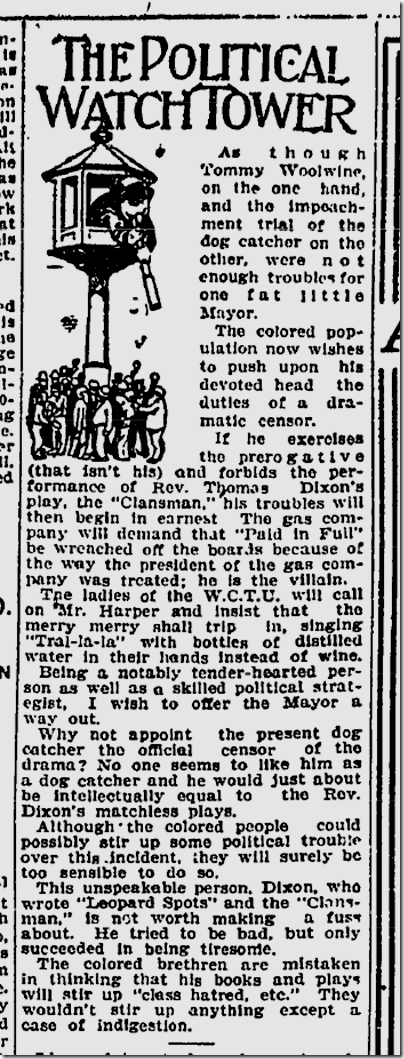
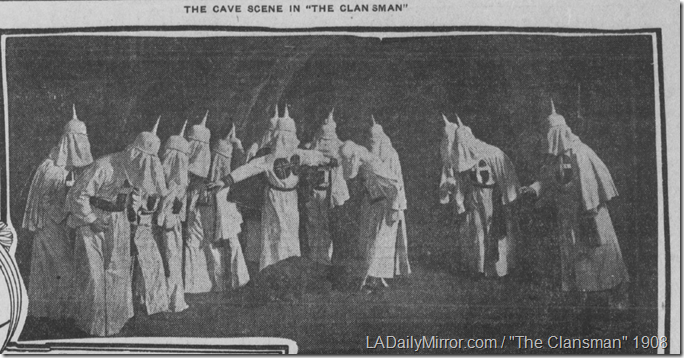
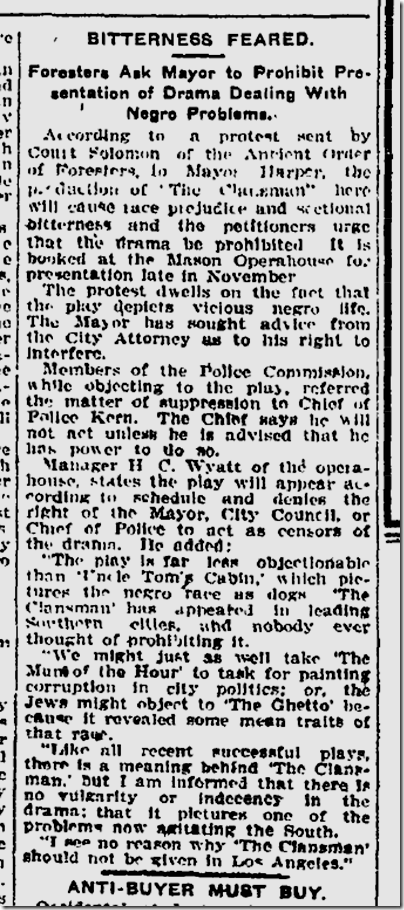
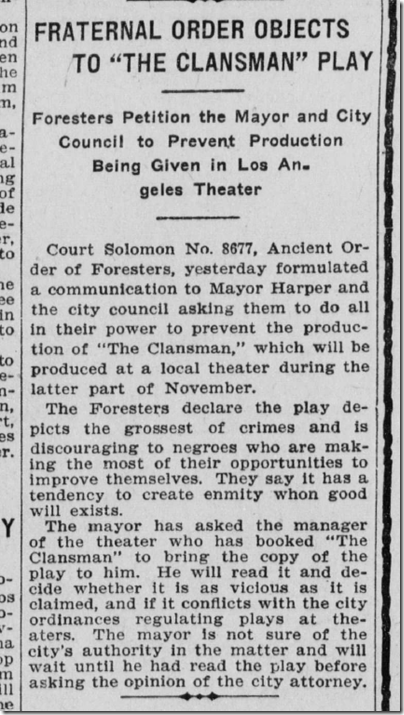
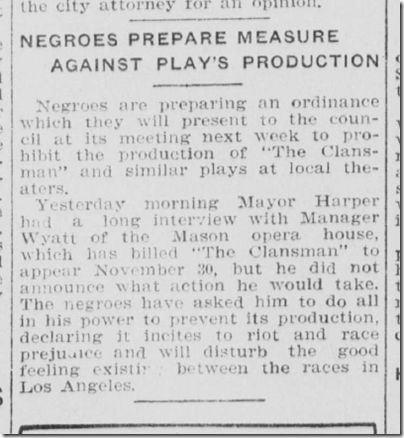
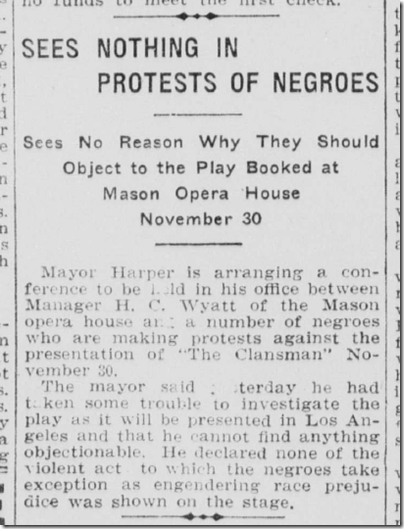

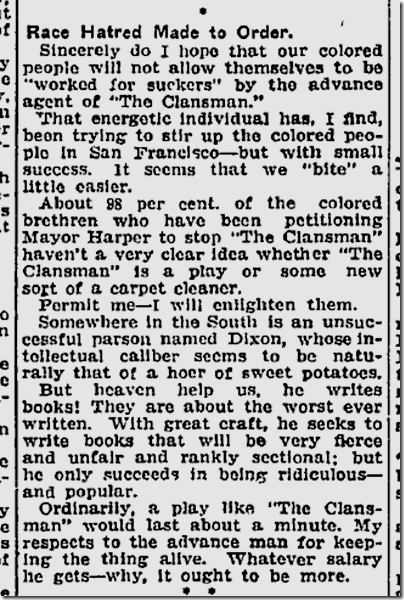
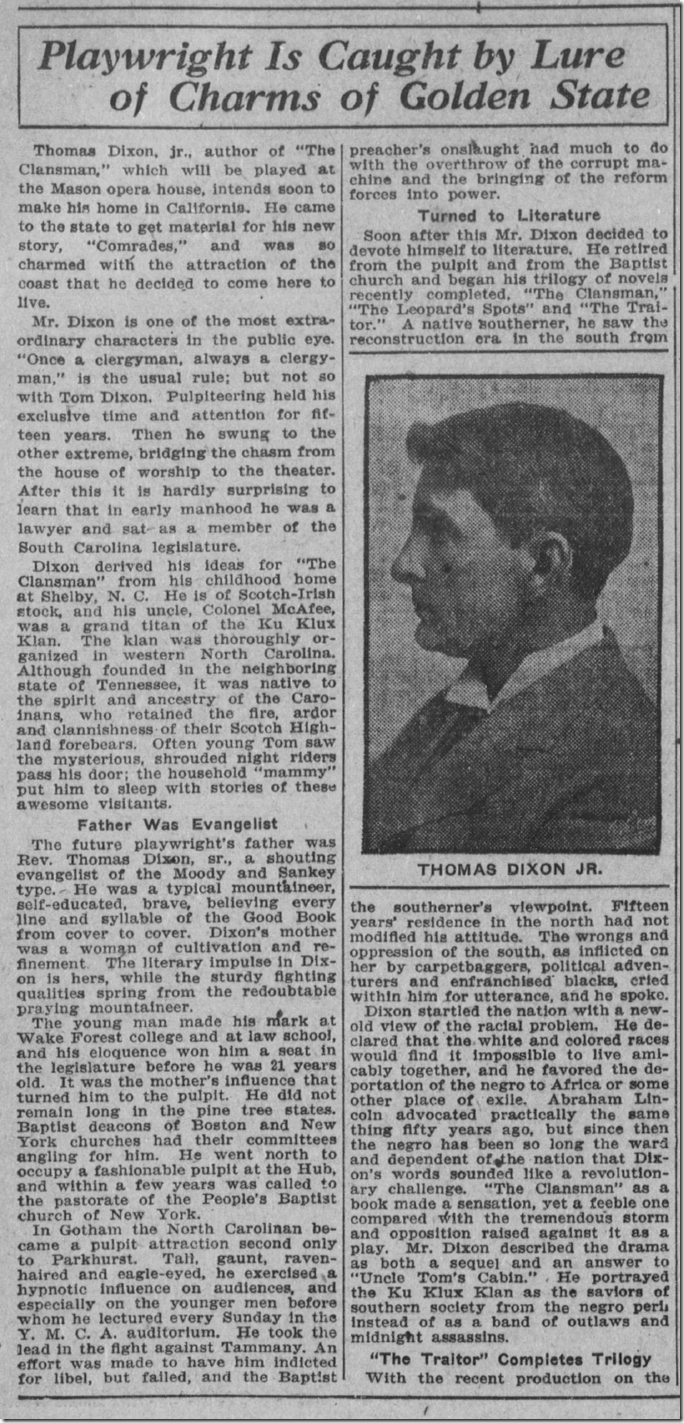

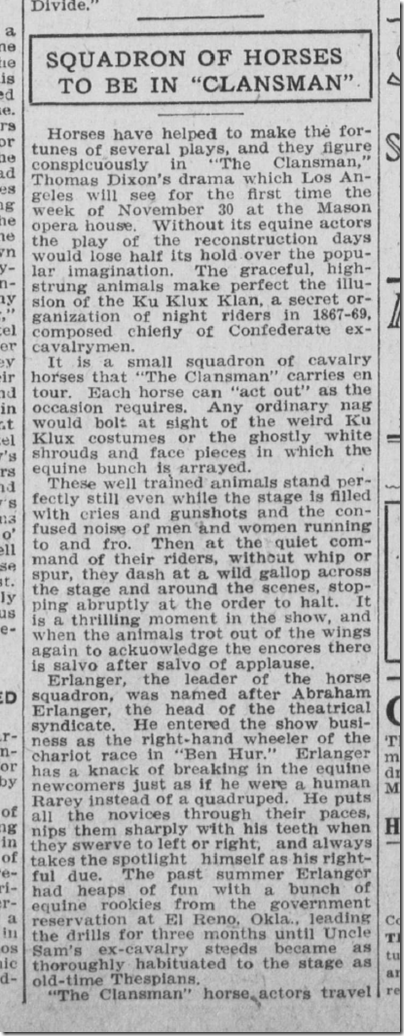
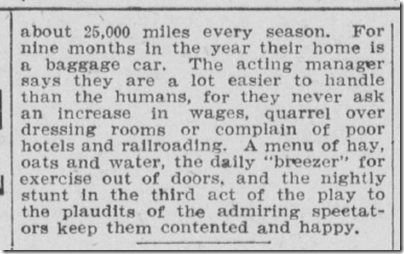
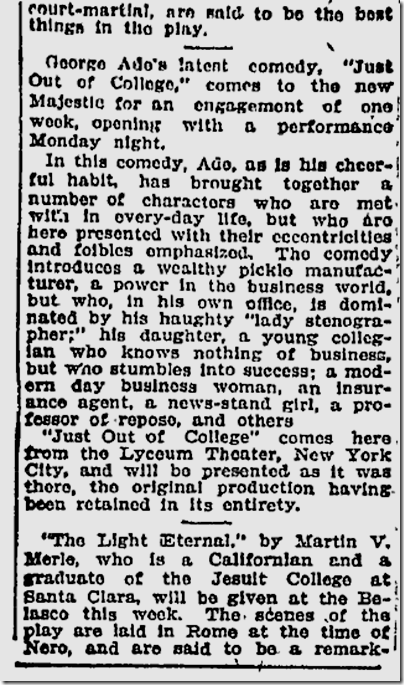
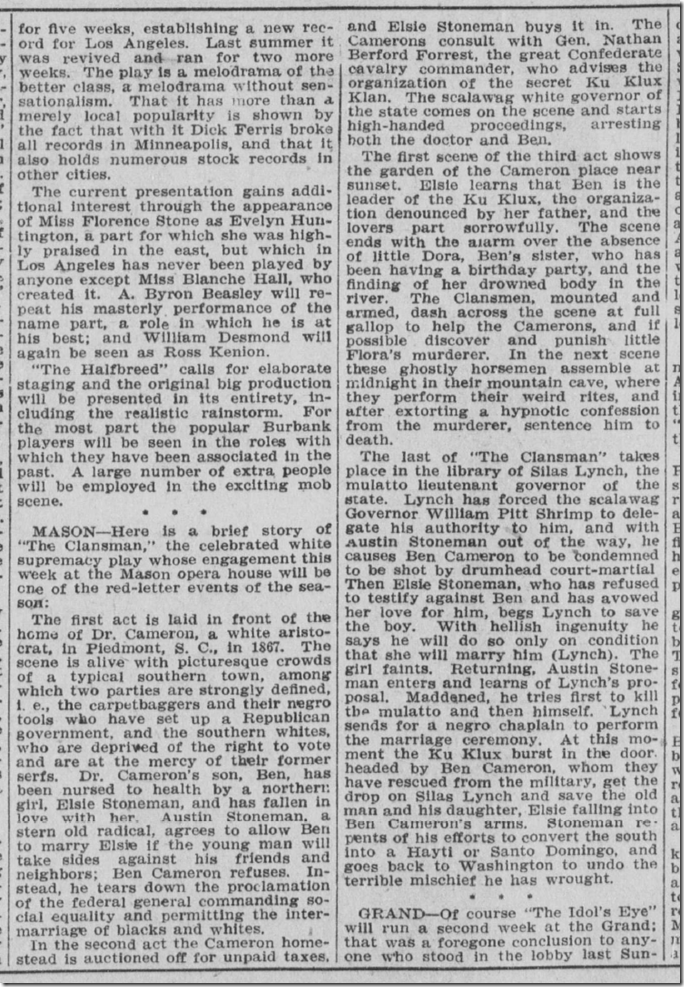
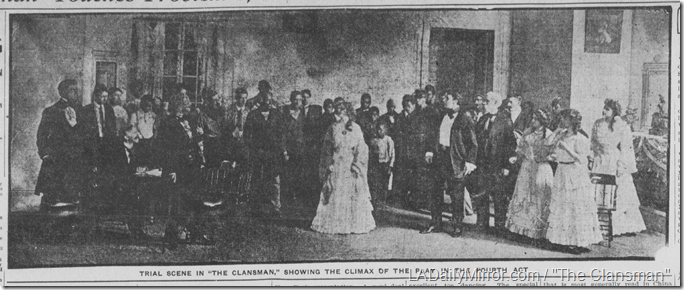

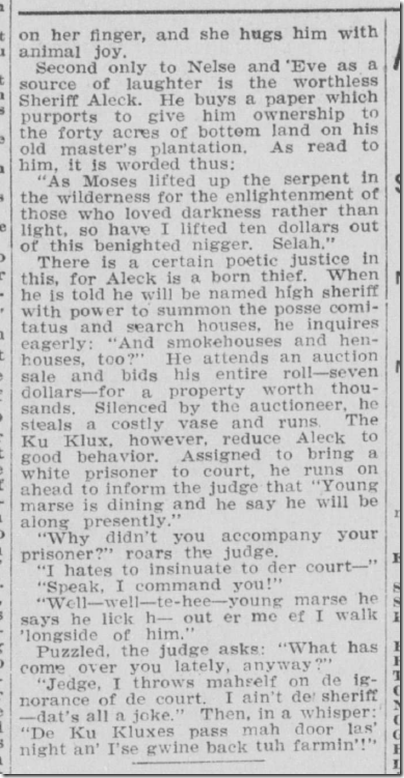

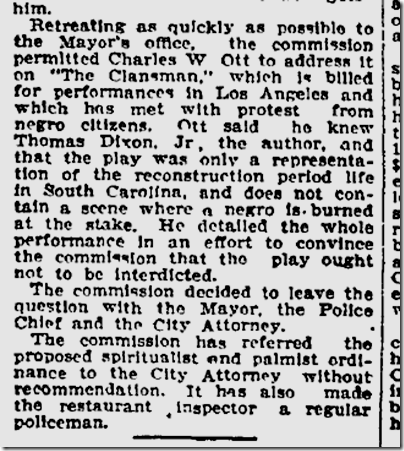
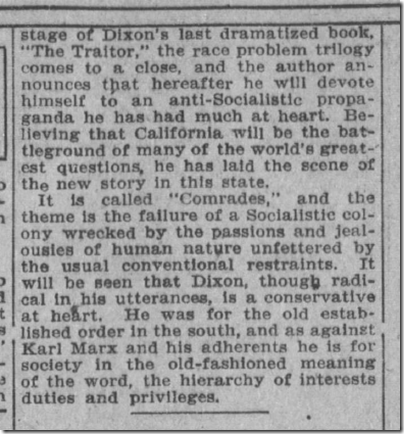
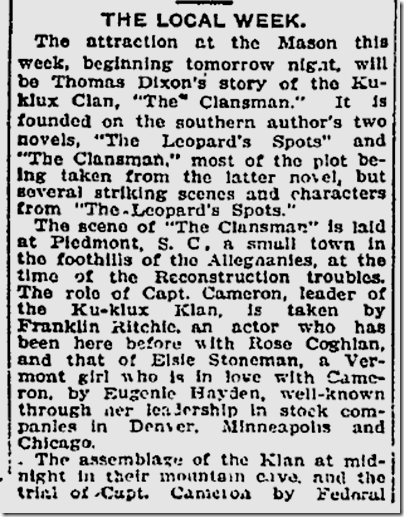

Terrific, Larry! Great to see all this. I put a link to your post on the Mason Theatre page.
LikeLike
Thanks!
LikeLike